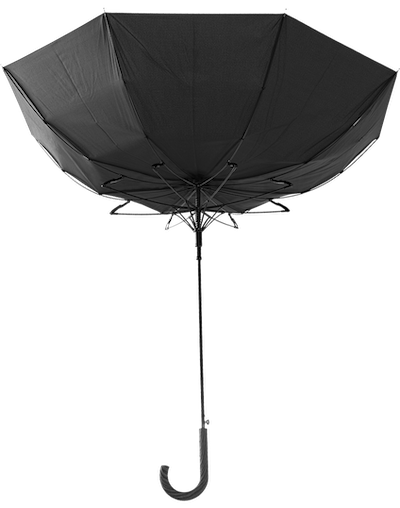Bournemout, Bristol and the BBC
What is the connection? Well, I shall explain over the next few days; but let's start with Bournemouth
and a brief history of the Bournemouth orchestra from the time of its inception in 1893:
The beginning of Dan Godfrey’s orchestra was, like Scarborough, Buxton, and other holiday resorts, mainly of the light music variety, but Godfrey gave a professional introduction to the more ‘classical’ music of the times Bournemouth Corporation gave the venture their approval and support and even encouraged the introduction of more ‘serious’ music.
On Godfrey’s retirement, Richard Austin took the helm and more classical works, limited only by the orchestra’s size were introduced to the residents and holiday visitors to Bournemouth..
In 1945, at the end of hostilities, the remnants of the orchestra re-formed, recruited additional players and soldiered on under the leadership of Monty Birch. Then, in 1947, Bournemouth opted to reform its Municipal band into a full symphony orchestra and appointed the Austrian Conductor, Rudolf Schwarz as its Principal conductor. I remember well attending the opening concert of that re-formed orchestra as a 14 year old schoolboy:
Ov. The Wasps
Emperor Piano Concerto (Iso Elison?)
Schubert’s great C major symphony (Schwarz’s favourite)
After two years, Schwarz moved on to the CBSO and Charles Groves came down from the BBC Northern Orchestra to take the reins.
A problem arose, because Eastbourne in particular (and other seaside resorts) started to engage Service Bands, REME, RAF Central, Guards bands, and principally the Royal Artillery Band, who had a regular six week contract to provide military band and orchestral music*.
Bright uniforms, Military band recitals with orchestral sessions also by the RA, RE and RAF. Popular tunes of the day and string music ranging from Ketelby (Ugh) to Elgar and Rossini.
The old codgers (ex Municipal Orchestra players) occupying Bournemouth’s Bandstand in the Lower Pleasure Gardens were no match, either musically or visually for such rival attractions and Bournemouth Council decided that they had to go.
So the Bournemouth Branch of the Musicians Union called them all out on strike and ordered the Municipal orchestra to take strike action in support. Bournemouth promptly gave the orchestra notice and saved themselves a lot of ratepayers’ money.
* 17 performances a week! Try that one on the Musicians Union!
(to be continued in my next post)
What is the connection? Well, I shall explain over the next few days; but let's start with Bournemouth
and a brief history of the Bournemouth orchestra from the time of its inception in 1893:
The beginning of Dan Godfrey’s orchestra was, like Scarborough, Buxton, and other holiday resorts, mainly of the light music variety, but Godfrey gave a professional introduction to the more ‘classical’ music of the times Bournemouth Corporation gave the venture their approval and support and even encouraged the introduction of more ‘serious’ music.
On Godfrey’s retirement, Richard Austin took the helm and more classical works, limited only by the orchestra’s size were introduced to the residents and holiday visitors to Bournemouth..
In 1945, at the end of hostilities, the remnants of the orchestra re-formed, recruited additional players and soldiered on under the leadership of Monty Birch. Then, in 1947, Bournemouth opted to reform its Municipal band into a full symphony orchestra and appointed the Austrian Conductor, Rudolf Schwarz as its Principal conductor. I remember well attending the opening concert of that re-formed orchestra as a 14 year old schoolboy:
Ov. The Wasps
Emperor Piano Concerto (Iso Elison?)
Schubert’s great C major symphony (Schwarz’s favourite)
After two years, Schwarz moved on to the CBSO and Charles Groves came down from the BBC Northern Orchestra to take the reins.
A problem arose, because Eastbourne in particular (and other seaside resorts) started to engage Service Bands, REME, RAF Central, Guards bands, and principally the Royal Artillery Band, who had a regular six week contract to provide military band and orchestral music*.
Bright uniforms, Military band recitals with orchestral sessions also by the RA, RE and RAF. Popular tunes of the day and string music ranging from Ketelby (Ugh) to Elgar and Rossini.
The old codgers (ex Municipal Orchestra players) occupying Bournemouth’s Bandstand in the Lower Pleasure Gardens were no match, either musically or visually for such rival attractions and Bournemouth Council decided that they had to go.
So the Bournemouth Branch of the Musicians Union called them all out on strike and ordered the Municipal orchestra to take strike action in support. Bournemouth promptly gave the orchestra notice and saved themselves a lot of ratepayers’ money.
* 17 performances a week! Try that one on the Musicians Union!
(to be continued in my next post)


 )
) - but then wondered about the date HS mentions: 2nd Jan. In itself a bit close to "the Festivities", perhaps - and then there was the particularly bad weather that month which may have had an influence ("the coldest January [in parts of the South East] since 1963; "the number of days with snow lying ... as much as three times [the average] in parts of the South and East") - the tickets might have been sold, but people unable to get to the concert - or, once there, concerned that they may not have been able to get back and so left during the interval?
- but then wondered about the date HS mentions: 2nd Jan. In itself a bit close to "the Festivities", perhaps - and then there was the particularly bad weather that month which may have had an influence ("the coldest January [in parts of the South East] since 1963; "the number of days with snow lying ... as much as three times [the average] in parts of the South and East") - the tickets might have been sold, but people unable to get to the concert - or, once there, concerned that they may not have been able to get back and so left during the interval? 
Comment